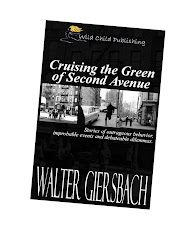
Some five decades ago, my
six-year-old son Billy howled that his pants scratched. It was 8:24 a.m. and we had to be out of our
apartment on the Lower East Side and on New York’s Avenue B bus in ten
minutes. No point in arguing. Had to change the pants and get to school on
time. His Montessori school was crazier
about punctuality than scholarship.
Back in rural Oregon, my mother
forbade me to wear bluejeans to school.
No, they weren’t “denims” or “dungarees.” They were bluejeans. One word, unhyphenated. And the middle class ethic dictated against
wearing “play clothes” to school. Mom
insisted, “If we don’t set an example for the rest of the town, who will?”
At 8:24 that morning I was
wearing a button down Oxford-cloth shirt, a rep tie and a blue wool suit. My pants scratched too.
“Wear the jeans,” I told
Billy. That made him happy. And I envied him.
And I envied the people who
passed by my Midtown office on Third Avenue.
Back then, their Levi jackets were an artist’s canvas of embroidery,
probably sewn lovingly by barefoot hipsters on Bleecker Street. Their clothes didn’t scratch.
The U.S. Army had taught me,
painfully, that you salute the uniform, not the officer wearing it. The nagging question that stayed with me
during those years was: Were they defensive about producing better uniforms
than officers? At the Bell System’s
Western Electric Co., people wore a company uniform, just as I’d worn a uniform
at school. One respected the uniform,
not the student. Not the employee. Not the officer. Not the person concealed in those clothes.
I went home that night of the
scratchy pants incident, and I hung up my Macy’s suit on a varnished wooden
hanger. Then I pulled on my bluejeans
and a blue T-shirt. I stuck my feet into
a pair of engineer boots that had cost me a buck in the summer of 1960 –
hand-me-downs from a fellow landscaper.
I was eminently comfortable.
Somewhere in Westchester County
at that very moment there was a business acquaintance who’d also changed. He was the treasurer of a large, century-old
corporation. When he came home, he
changed out of his five hundred dollar suit and into cowboy clothes. A real costume, not just bluejeans. Then, I suppose he sat down to read his mail.
Perhaps his pants also scratched
at work.
I mentioned this to my wife Judy,
and she said we were both looking for lost innocence. Maybe, but I’d say the cowboy executive had
psychological issues I don’t share. At
least people can’t say they don’t recognize him when he’s in the front yard
looking like Roy Rogers.
When I’m in jeans the jeans are
me, a blueprint of my character, a silhouette portrait of all my faults and perfections. No pretense.
I wear them and the psyche doesn’t itch.




No comments:
Post a Comment